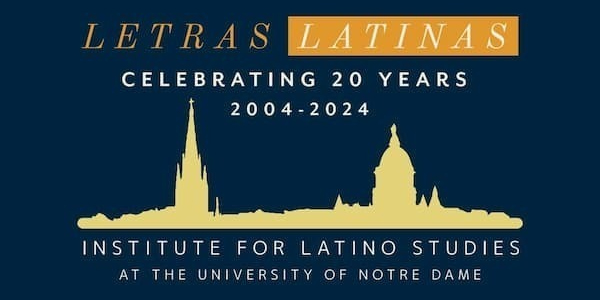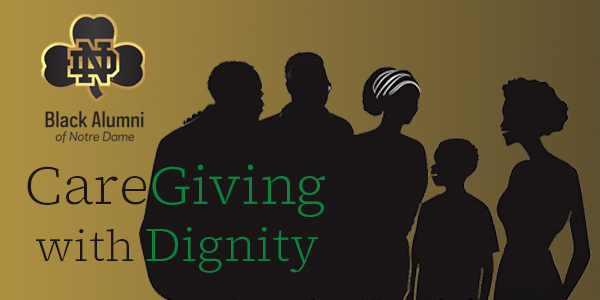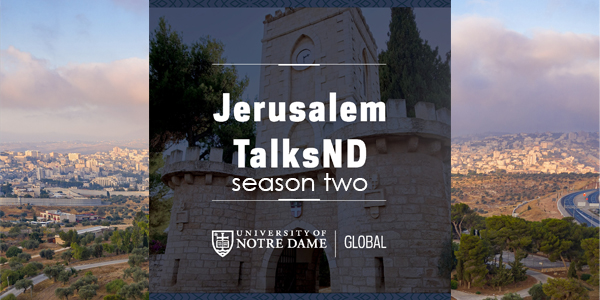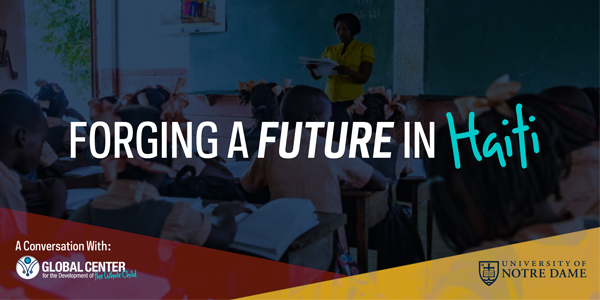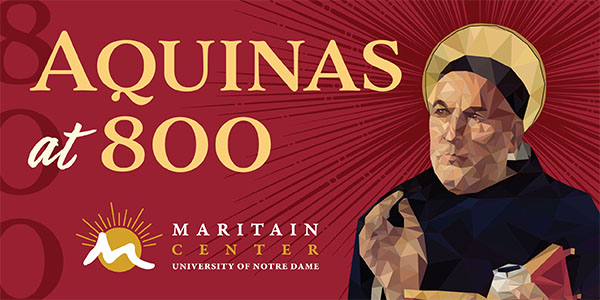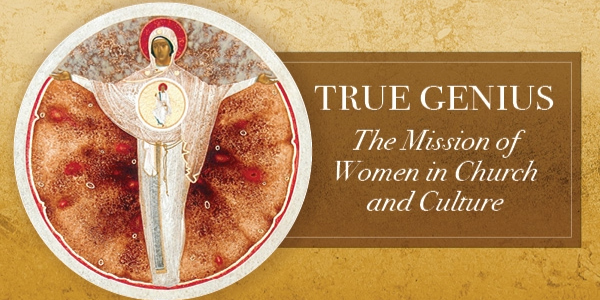The second event in the Thinking with Newman series focused on the “value of the university,” in and beyond the classroom. The discussion spent time examining the value of a Catholic education, like Notre Dame, and what it can do for students after graduation. This event was moderated by Fr. Gary Chamberland and Kevin Whelan, with special guests Rev. Dave Tyson, C.S.C., Kathleen Sprows Cummings, and Aisling MacRunnels.
To start the discussion, Fr. Tyson was asked to explain the vision of higher education today. He said the vision of higher education can be complex and that of Catholic higher education can be even more distinct. Tyson first made the distinction that “vision” is different from “mission.” The vision of a university is something that they are aiming to achieve in the far future rather than something they are practicing at the very moment. Tyson listed several things that universities should strive to achieve: a clear mission, integrated knowledge, the common good, and residentiality. Tyson believes that these four areas are valuable in higher education today.
Whelan then turned to Cummings and asked her to explain how Catholic universities reconcile the challenge of keeping their mission and vision, while also keeping up with the demands of being the very best in comparison to other universities. Cummings believes that religious universities trail secular universities in terms of resources and reputation, a challenge that Newman mentioned in his writings. Whelan then asked Cummings to explain how the university can maintain its Catholic tradition while still competing with secular universities. Cummings thought that exposing students to both the religious and lay person in the classroom can help pass the charism on to students. Cummings also believes that Catholic teachings can be infused into any subject. These methods of Catholic teaching in the classroom can help keep the charism alive in the university.
The discussion then turned its focus to MacRunnels, who works in Silicon Valley and offered a different perspective on how the value of the university plays a role in life post-graduation. MacRunnels said when tech companies first started hiring, they were looking for employees who had a lot of technical talent and skills. As time progressed, companies started finding value in employees who were not just skilled technically, but who were also creative, thoughtful, and passionate. These softer skills and diversity of thought in the workplace became more and more critical. MacRunnels prefers to hire students who might not be at the top of their class, but who are well-rounded and can understand and interact with others.
The conversation wrapped up with a discussion about the importance of a transformative education that goes beyond grades. Students want to find a community in their university, where they feel they are part of something bigger than themselves and can make a difference in the world.
Visit the event page for more.

